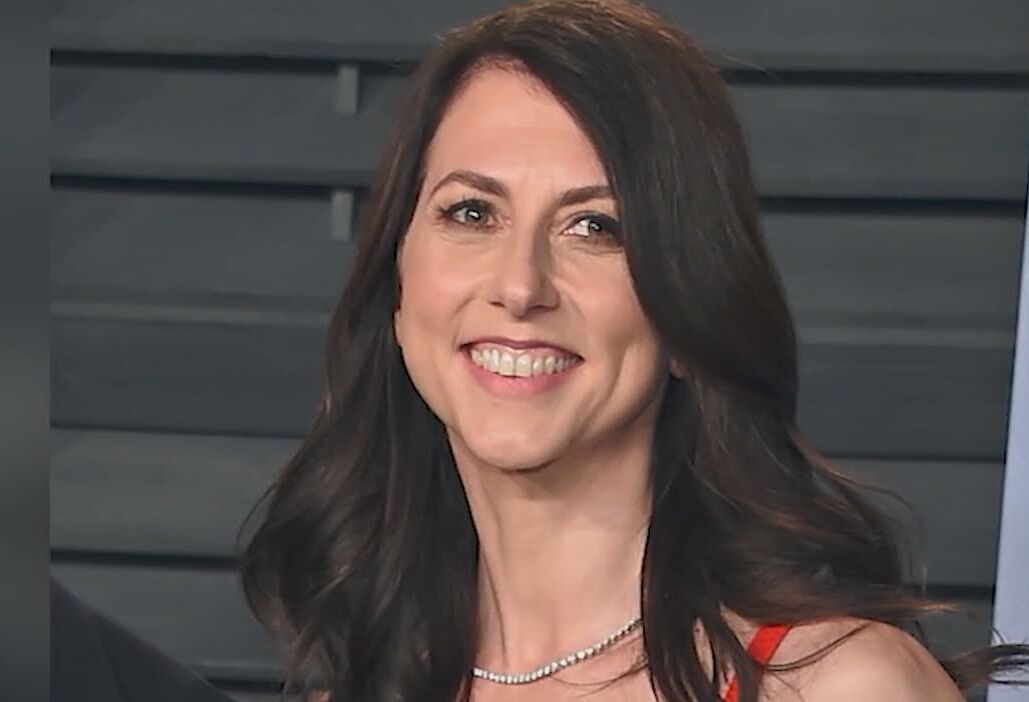- Home
- Billionaires
- Investing Newsletters
- 193CC 1000
- Article Layout 2
- Article Layout 3
- Article Layout 4
- Article Layout 5
- Article Layout 6
- Article Layout 7
- Article Layout 8
- Article Layout 9
- Article Layout 10
- Article Layout 11
- Article Layout 12
- Article Layout 13
- Article Layout 14
- Article Sidebar
- Post Format
- pages
- Archive Layouts
- Post Gallery
- Post Video Background
- Post Review
- Sponsored Post
- Leadership
- Business
- Money
- Small Business
- Innovation
- Shop
Recent Posts
MacKenzie Scott: A Life of Purpose, Philanthropy, and Quiet Strength

MacKenzie Scott has emerged as one of the most impactful philanthropists of the 21st century, a woman whose personal journey—from novelist to billionaire to one of the most generous givers in history—reflects profound conviction, compassion, and resilience. Though she initially gained public recognition as the former wife of Amazon founder Jeff Bezos, Scott has steadily carved out a distinct identity, defined not by wealth or fame but by unwavering dedication to social justice, equity, and transformative change.
Born MacKenzie Tuttle in San Francisco in 1970, she grew up in a household that supported her creative aspirations and academic ambitions. From an early age, Scott displayed a deep love for literature and storytelling. She studied English at Princeton University, where she trained under Nobel laureate Toni Morrison, who later praised Scott as one of her most talented students. Her passion for writing led her to pursue a career in literature, and in 2005, she published her debut novel The Testing of Luther Albright, which received an American Book Award. This early success was a testament to her literary talent and thoughtful introspection.
While her writing career was in its early stages, Scott was also part of building something unprecedented alongside her then-husband, Jeff Bezos. The couple met while working at D.E. Shaw, a hedge fund in New York City. Soon after, they married and moved to Seattle, where they started Amazon out of their garage in 1994. Scott played a key role in Amazon’s early days, handling the company’s accounting and administrative work while Bezos focused on technology and business strategy. Although she eventually stepped away from the company’s operations, Scott’s contributions to its foundation were essential, and her presence during Amazon’s formative years set the stage for the immense growth that followed.
Scott maintained a low public profile for many years, dedicating herself to her family, her writing, and charitable causes. Her philanthropic evolution accelerated dramatically following her 2019 divorce from Bezos. As part of the settlement, Scott received 25% of the couple’s Amazon shares—amounting to roughly $36 billion at the time—instantly placing her among the wealthiest individuals in the world. But rather than wielding her fortune for power or prestige, Scott made it clear that her mission was to give it away with humility and urgency.
In May 2019, she signed the Giving Pledge, a commitment created by Bill and Melinda Gates and Warren Buffett for billionaires to donate the majority of their wealth to philanthropic causes. Scott’s approach, however, stood out in its transparency, speed, and breadth. Rather than create a foundation that imposed top-down goals or operated with extensive bureaucracy, she chose to distribute her wealth directly to organizations already doing impactful work. Guided by a team of researchers and advisors, she focused on historically marginalized communities and grassroots nonprofits that often lack access to major funding.
Her giving has been both massive and remarkably diverse. By the end of 2023, Scott had donated more than $14 billion to over 1,600 organizations across all 50 U.S. states and globally. Her recipients include historically Black colleges and universities (HBCUs), organizations supporting LGBTQ+ rights, food banks, racial justice initiatives, educational institutions, health care nonprofits, and environmental groups. Scott’s donations often arrive without restrictions or elaborate reporting requirements—an unusual practice in the world of large-scale philanthropy. This trust-based approach empowers grantees to use the funds as they see fit, acknowledging their expertise and experience on the ground.
Her philanthropy is grounded in a strong belief in equity and the need to address systemic injustice. She has expressed skepticism of traditional philanthropic practices that prioritize control, visibility, or public acclaim. Instead, she seeks to redirect resources to those closest to the problems, prioritizing justice over legacy. This philosophy has endeared her to many nonprofit leaders, who often struggle to attract unrestricted funding and are rarely trusted to lead their own change.
Despite her monumental giving, Scott remains a private figure. She does not maintain a public social media presence, rarely gives interviews, and often allows the nonprofits she supports to announce her gifts. Her quiet demeanor contrasts sharply with the high-profile personas of many billionaires, reinforcing her commitment to humility and impact rather than optics.
Scott’s journey is also a testament to the power of reinvention. From a literary scholar and writer to the co-builder of one of the world’s most powerful companies, and ultimately to a philanthropist reshaping global giving, she has continually evolved with purpose. In 2021, she announced that she had changed her last name to Scott, a personal choice that symbolized her independence and new chapter. That same year, she married Dan Jewett, a science teacher, though the couple later divorced quietly.
While critics argue about the ethics of billionaire philanthropy and the influence of private wealth in public life, Scott’s actions have nonetheless shifted the conversation. Her bold, rapid giving has put pressure on other wealthy individuals and foundations to act with greater urgency. Her model of low-ego, high-trust philanthropy has become a beacon for a new generation of givers seeking more equitable, effective, and ethical ways to share wealth.
MacKenzie Scott’s story is one of strength, intellect, and quiet revolution. She has redefined what it means to be a philanthropist, not through massive foundations or flashy campaigns, but through radical generosity and trust. Her legacy is not only measured in billions given, but in lives changed and voices empowered. In a world often fixated on accumulation, Scott offers a powerful counterexample: that with great wealth comes not just responsibility, but an opportunity for deep, systemic healing. Her continued work stands as a reminder that true impact lies not in what we keep, but in what we give away—and in how we do it.
- Amazon
- Amazon co-founder
- American philanthropist
- Billionaire
- climate action
- Community Support
- D.E. Shaw
- Dan Jewett
- divorce settlement
- donor trust
- education funding
- effective altruism
- Empowering Communities
- Equity
- ethical wealth use
- female billionaires
- female philanthropist
- food insecurity
- Giving Pledge
- Global Philanthropy
- grassroots organizations
- HBCUs
- impactful giving
- Jeff Bezos
- LGBTQ+ rights
- literature
- low-ego leadership
- MacKenzie Scott
- MacKenzie Scott biography
- MacKenzie Scott donations
- MacKenzie Scott life story
- modern philanthropy
- nonprofit funding
- novelist
- Philanthropist
- private billionaires
- progressive philanthropy
- quiet philanthropy
- racial equity
- responsible giving
- Seattle
- Social Justice
- systemic change
- tech philanthropy
- The Testing of Luther Albright
- Toni Morrison student
- transformational giving
- unrestricted giving
- wealth ethics
- wealth redistribution
- Women in Tech
- Women Leaders
Recent Posts
Categories
- 193 Countries Consortium Partner1
- 193cc Digital Assets2
- 5G1
- Aerospace & Defense48
- AI37
- Arts3
- Banking & Insurance11
- Big Data3
- Billionaires1,506
- Boats & Planes1
- Business332
- Careers13
- Cars & Bikes79
- CEO Network1
- CFO Network17
- CHRO Network1
- CIO Network1
- Cloud10
- CMO Network18
- Commercial Real Estate7
- Consultant1
- Consumer Tech194
- CxO1
- Cybersecurity73
- Dining1
- Diversity, Equity & Inclusion4
- Education7
- Energy8
- Enterprise Tech29
- Events11
- Fintech1
- Food & Drink2
- Franchises1
- Freelance1
- Future Of Work2
- Games149
- GIG1
- Healthcare79
- Hollywood & Entertainment203
- Houses1
- India’s 1000 Richest1
- Innovation46
- Investing2
- Investing Newsletters4
- Leadership65
- Lifestyle11
- Manufacturing1
- Markets20
- Media327
- Mobile phone1
- Money13
- Personal Finance2
- Policy569
- Real Estate1
- Research6
- Retail1
- Retirement1
- Small Business1
- SportsMoney42
- Style & Beauty1
- Success Income1
- Taxes2
- Travel10
- Uncategorized15
- Vices1
- Watches & Jewelry2
- world's billionaires1,475
- Worlds Richest Self-Made Women2
Related Articles
Francis Choi: The Toy Tycoon Behind a Billion-Dollar Empire
Francis Choi Chee-ming, often referred to as Hong Kong’s “King of Toys,”...
By 193cc World's BillionairesJune 6, 2025Francine von Finck and the Legacy of a Discreet Fortune
Francine von Finck, a name that commands respect in elite business circles,...
By 193cc World's BillionairesJune 6, 2025The Life and Legacy of Stefano Pessina
Stefano Pessina, one of the most influential figures in the global pharmaceutical...
By 193cc World's BillionairesJune 6, 2025John Morris: A Life of Vision, Growth, and Legacy
John Morris, the founder of Bass Pro Shops, is an iconic figure...
By 193cc World's BillionairesJune 6, 2025















Leave a comment